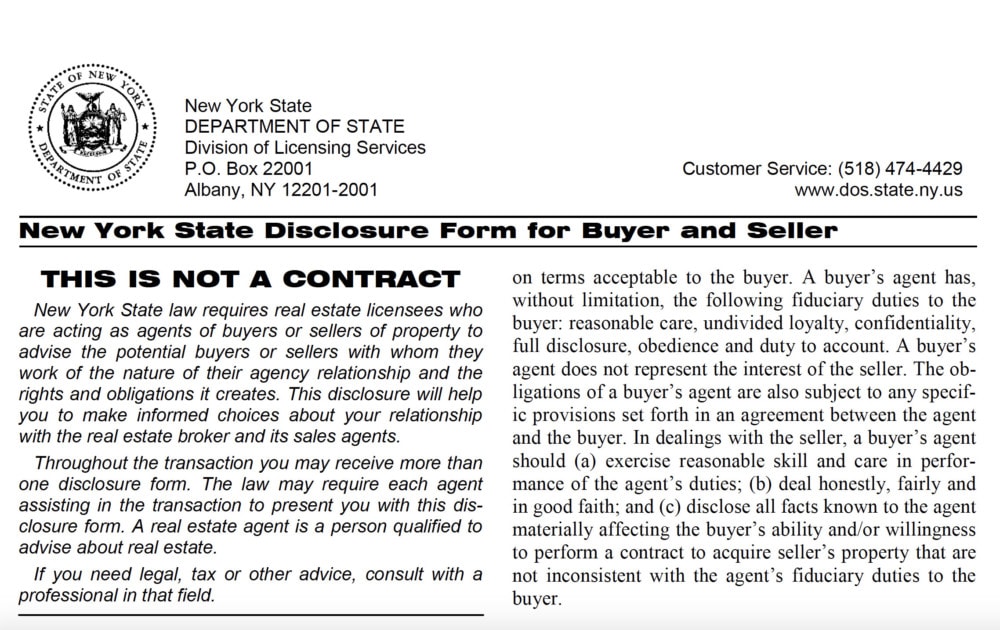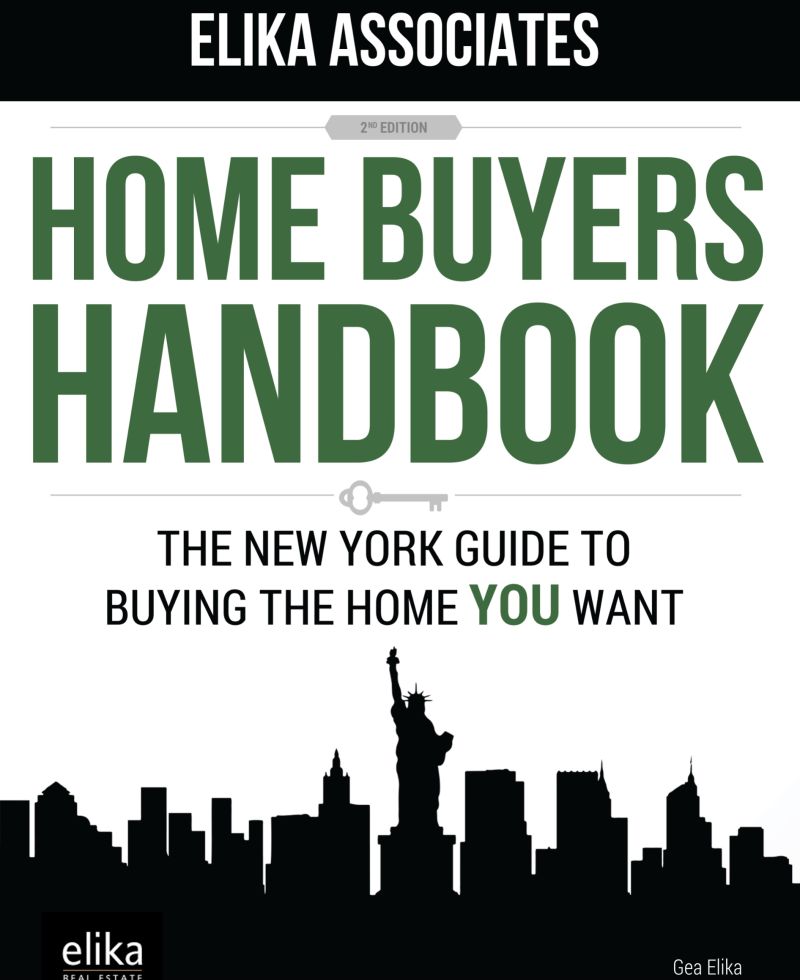Table of Contents Show
You should understand your real estate agent’s legal responsibilities and duties to provide you; with other parties under the New York State agency disclosure form. Homebuyers, ask your buyer’s agent to explain the type of agency relationship they have with you and the brokerage. Our article discusses the NYS Agency Disclosure form, different agency types, and duties. New York State law requires the agent to present you with the agency disclosure form provided below at your first meeting.
Whether you are a home buyer, investor, or seller, it is vital to understand the duties owed to you.
NYS Agency DisclosuresNYS Agency Disclosures
Seller’s AgentSeller’s Agent
The listing agreement creates an agency relationship. The seller hires a listing agent to represent them. The agent’s fiduciary responsibilities are to the seller alone.
Buyer’s AgentBuyer’s Agent
The buyer hires a buyer’s agent to represent them in a real estate transaction. The buyer’s agent owes fiduciary responsibility solely to the buyer. The buyer’s agent can work for a fee paid by the buyer or receive payment from the seller via a commission split with the listing agent.
Broker’s AgentBroker’s Agent
These agents cooperate with a listing agent or a buyer’s agent. Significantly, the broker’s agent does not work for the same firm as the listing/buyer’s agent with whom they work. These agents don’t have a relationship with either the buyer or seller.
Dual AgentDual Agent
Understand the perils of dual agency. A dual agency is a relationship that occurs when the brokerage firm represents both the buyer and the seller; in the same real estate transaction. Designated Dual agents have limited fiduciary responsibilities, and there is a potential for conflict of interest. Because of this, all parties in a dual agency relationship must give their informed consent. Disclosed dual agency, in which both the buyer and the seller are aware that a single agent represents them, is legal in most states.
Dual Agent with Designated Sales AgentDual Agent with Designated Sales Agent
A designated agency avoids many of the pitfalls associated with a dual-agency relationship. A brokerage practice allows the managing broker to designate which agents will act for the seller and represent the buyer. The broker supervises both groups of agents. The designated agents give their clients full representation, with all the attendant fiduciary duties.
The Importance of a Qualified Buyer’s AgentThe Importance of a Qualified Buyer’s Agent
At Elika, we understand why different properties appeal to buyers, so we know how to present you with properties that fit your lifestyle and needs. We help with the deluge of paperwork also associated with buying a home. We help make sure that our clients understand the purchasing timeline. And by keeping our clients informed every step of the way, we keep the process relaxed. We are familiar with New York neighborhoods and properties; we can also offer a professional, experienced point-of-view, which is valuable when applying, negotiating, and financing.
New York is one of the most culturally diverse cities in the world. With many beautiful neighborhoods to choose from, limitless food and entertainment options, and relatively stable property values, it is easy to see why people decide to buy New York Real Estate. Unfortunately, it is also easy to make simple mistakes when purchasing in the city. Proper buyer’s representation from Elika is an essential tool that will eliminate errors; reduce your stress while getting the best possible real estate deal.
Designated AgencyDesignated Agency
You might have heard the term “designated agency” in real estate circles. A single real estate transaction refers to the buyer’s agent and the seller’s agent working for the same brokerage firm. In this scenario, the buyer and the seller are denied; true representation, and one firm earn the full commission.
Dual AgencyDual Agency
Who represents the buyer and seller in the same real estate transaction. The NYS Agency Disclosure defines dual agency as the relationship between a single real estate broker and the designated agency. In both dual agency and designated agency, brokers who the same real estate firm employs are prohibited by law from negotiating for their clients, buyers, and sellers. Dual agents are more focused on closing the transaction. Under these circumstances, brokers can be privy to confidential information from the buyer and seller that they would not have had access to otherwise.
Even though legal in New York State, these types of agencies are considered conflicts of interest, they do not provide undivided loyalty to the client; instead, these relationships are profitable for the brokerage firm and discourage trust between the broker and their client.
Co-BrokeringCo-Brokering
When purchasing a property in NYC, it’s best to work with an exclusive buyer’s agent, one with whom you can build a relationship. A knowledgeable, excellent buyer’s agent will negotiate on your behalf. Based on the Real Estate Board of New York’s co-brokering policies.
The seller pays the entire broker’s commission; commissions range from 4 to 6 percent to the listing agent, or the commission is co-brokered 50/50 between the buyer’s agent and the listing agent. Regardless of the listing price, legally, you will pay that amount of commission; a wise idea to take advantage of the expertise of a buyer’s agent and reap the benefits mentioned above.
Discussing Legal Agency (VIDEO)Discussing Legal Agency (VIDEO)
NYS Agency Disclosure Form DownloadNYS Agency Disclosure Form Download
